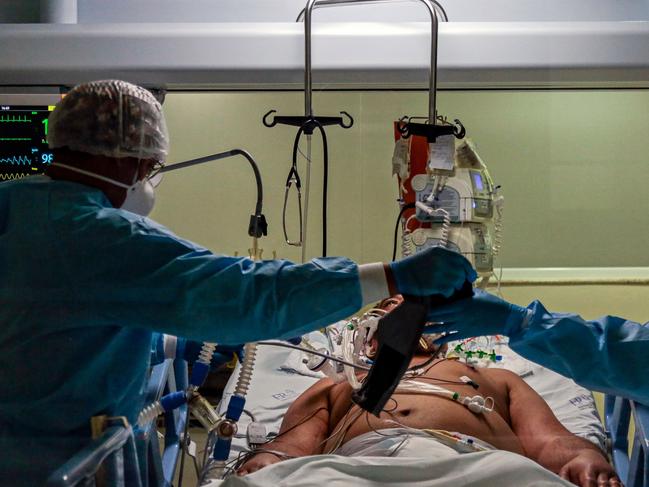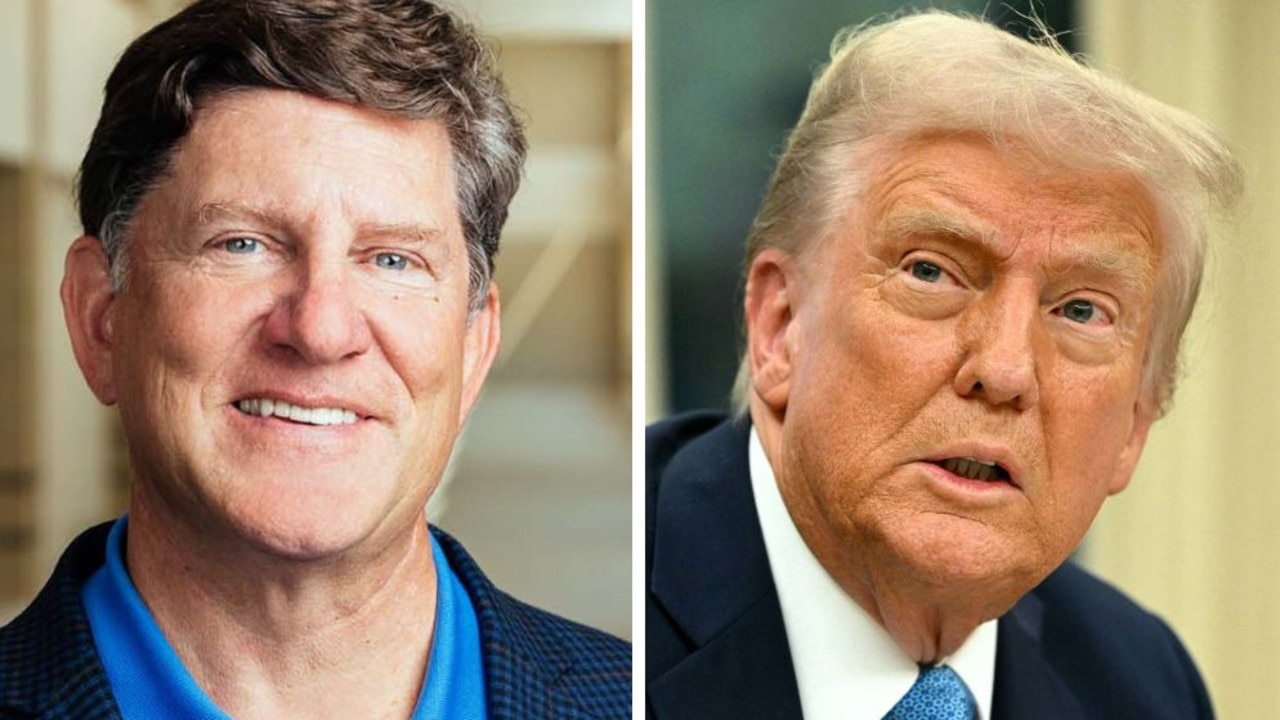The dangerous and ugly debate simmering in Australia
As coronavirus cases continue to fall in Australia, a dangerous and ugly debate about the price of a human life is picking up steam.

Business
Don't miss out on the headlines from Business. Followed categories will be added to My News.
Most Australians accept that temporarily shutting down large parts of the economy is a difficult but necessary part of beating the coronavirus.
But others are using the tough measures as an excuse to engage in a cruel debate that pits the lives of Australia’s elderly against the cost to the economy.
The journal Science first floated the question in late March when it published research under the headline: Experts weigh lives versus economics.
The article discussed the dilemma being faced by macroeconomists who were “more familiar with gauging how interest rates might influence employment”.
“If it turns out a lot of people get infected and have few symptoms, the economically sensible approach might be to let the infection spread and accept that there will be some death toll,” researchers wrote.
Less than two weeks later, the following headline appeared in the Australian Financial Review: Lives matter but at what cost?
Related: Follow the latest coronavirus updates
Related: Coronavirus cases in Australia

The author, John Kehoe, wrote that “there is a high economic and social price being paid” for Australia’s efforts to flatten the curve and save lives.
“Unemployment is surging, businesses are closing, incomes are being slashed. People are hurting,” he wrote.
Then he took it one step further by making the case that Australians over the age of 70 aren’t worth as much as younger Australians.
“Many seniors have had time to enjoy careers, children and grandchildren,” he began.
“My father is 68 and insists he’s had a good run. With the swimming pool and tennis club in his Victorian town now closed, his daily pursuits are off limits. His physical fitness and mental wellbeing are suffering.
“Some seniors like him would not put their own life above the livelihoods of their children and grandchildren, if the economic and social costs become too great.”
Unsurprisingly, the piece caused outrage.
2019 AFR: How fricking dare anyone suggest pensioners give up their franking credits.
— Greg Jericho (@GrogsGamut) April 9, 2020
2020 AFR: Pensioners? Meh, they've had a good run.
Journalist Jan Fran was among those who hit back at the “reductionist” argument.
“Maybe I’m wrong but none of the spicy ‘let the virus spread to save the economy’ hot takes are written by poor, sick, old or disabled people,” she wrote on Twitter.
“They’re always written by some legend in a suit who did some maths and worked out that your nan is probs not worth saving as much as — say — a young, healthy person who will contribute more to the economy.
“This is true if you think a human being’s value should be measured by their economic contributions.
“If that’s the case then just cut the sh*t and say you think some lives are worth more than others because of the money/capital they make/earn/produce. Actually, say it!”
She argued that those willing to sacrifice the elderly to keep the economy running have “flattened what it means to be human”.
Just thinking through some stuff so bear with me. Maybe I’m wrong but none of the spicy 'let the virus spread to save the economy' hot takes are written by poor, sick, old or disabled people. 1
— Jan Fran (@Jan__Fran) April 15, 2020
But Kehoe isn’t the only one pushing hard to remove strict quarantine laws and reopen businesses. The Institute of Public Affairs was slammed when it released a bizarre video on April 7 arguing that reopening churches, restaurants, cafes, bars and community sport was a “sensible” idea, despite experts everywhere saying the opposite.
“Our response to the coronavirus outbreak has decimated our society, ruined thousands of lives, turned Australia into a police state and, worst of all, put hundreds of thousands of Australians out of work,” the think tank’s policy director Gideon Rozner argued.
He said it was time for state and federal governments to come up with a plan to win the lockdown and let people rebuild their lives.
“Do it safely with appropriate social distancing measures in place, but do it now, not in six months, not in one month. Now, because Australians were not meant to live like this, and we cannot allow this to go on any longer,” he says.
“Enough is enough. It is time to begin to end this lockdown now.”
📺 NEW VIDEO: @GideonCRozner explains why the efforts by state and federal governments to control the health crisis created by the #covid19au outbreak risks creating as much bigger economic and humanitarian crisis. We must begin to end this lockdown now. pic.twitter.com/5q3gXzgZuP
— Institute of Public Affairs (@TheIPA) April 3, 2020
Of course, to do so would be catastrophic. New modelling from the Doherty Institute and Monash University shows that Australia, plainly, is not ready.
It reveals that if Australia’s reproduction number — how many people could be infected by just one case — increased from below one to somewhere around 2.5, there could be more than 70 deaths in just three weeks’ time.
“If we lift measures, and it depends how much you lift them, but if we were to lift all of them and we get back to a reproduction number of 2.5, then we’re back on an exponential curve,” Victoria’s Chief Health Officer Brett Sutton said.
“The numbers would get up to 10,000 in a matter of weeks. So we have to keep the reproduction number below one in order to maintain the pressure down on the numbers that we have in Victoria.”
Originally published as The dangerous and ugly debate simmering in Australia



